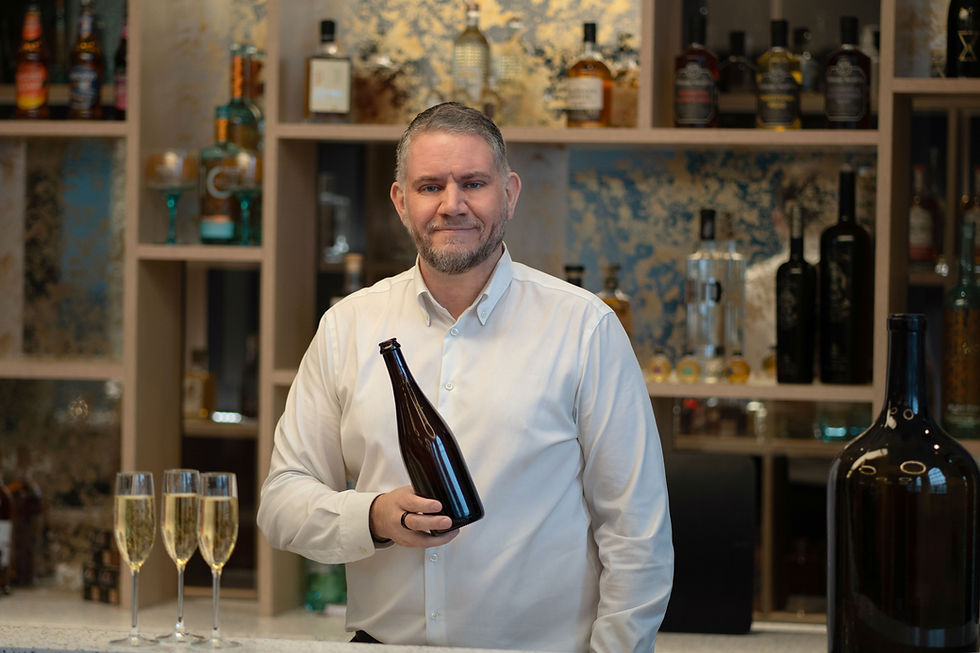- lindaandrews071
- Sep 4, 2025
- 3 min read

Skyscanner, one of Scotland’s biggest tech success stories, is the founding partner of an innovative new pilot, combining computer science initial teacher education and a career in the tech industry. The ‘braided career’ approach aims to encourage software engineers to earn a teaching qualification and inspire the next generation of coders, while still building their careers outside the classroom.
Skyscanner has recruited a mix of existing and new employees specifically for the programme, all four of whom will take on part-time positions at the travel search giant, enabling them to study for PDGE Diplomas at the University of Glasgow while also taking on teaching placements at Glasgow University partnership schools.
The new programme, thought to be the first of its kind in Scotland, has been developed by computing science and teacher education experts at the University of Glasgow, in partnership with KPE4 Charitable Trust.
The programme is setting out to address the shortfall in computing science teachers in Scotland’s secondary schools, helping pupils to find rewarding careers in the future and providing a pipeline of talent to help support the Scottish tech sector in the years to come.
Figures from the annual census of Scotland’s teachers show there are now only 550 computing studies teachers - a loss of 28 teachers since 2023, adding to the overall loss of 45 Scottish computing teachers since 2020.
The braided career programme has been designed to allow experienced industry professionals to apply their skills, passion and knowledge to the classroom and inspire the next generation of Computing students. The braided career students will undertake the full PDGE including a two year-probation teaching in schools, part time. Once qualified, they will be supported by Skyscanner to continue their hybrid careers, should they wish to do so.
Skyscanner’s Chief Technology Officer Andrew Phillips said:
“We would not be the hugely successful business we are today, a global leader in the travel search field, without the grassroots talent who built this company in our early years in Scotland. Unfortunately, one in eight secondary pupils in Scotland now attend a school with no qualified computer science teacher."
“The future growth of Scotland’s tech industry will be dramatically constrained if the systematic challenge of a narrow local talent pipeline is not addressed. That starts at school level, so when we were approached to pilot the same kind of big-picture thinking we use for our product in supporting a solution to the Computer Science teacher shortage, it made total sense.”
The programme is the result of a collaboration between teacher education senior lecturers at the University of Glasgow’s School of Education and School of Computing Science. The University’s Centre for Computing Science Education is working to support coherent progression of the subject in schools from early years education through to graduate level and beyond.
While the first year of the programme will focus on establishing the programme with the support of Skyscanner, the team are working to involve other employers to broaden the scope of the programme in the years to come.
Mary Lappin, Deputy Head of the UofG’s School of Education, said:
“Scotland is home to some of the world’s leading universities and an ever-expanding science and tech sector. Together, they are producing remarkable breakthroughs in research and development, all backed by cutting-edge computing science."
“Nurturing home-grown talent from an early age is key to maintaining that growth in the years ahead, and ensuring that high-quality computing science education is offered in schools will help us do that."
“We’ve developed this braided careers approach to help tap into the expertise of Scotland’s tech sector. We’re delighted to be partnering with Skyscanner in this initial pilot phase, helping pupils to benefit from direct access to current industry experience. We’re looking forward to building on the foundations we’re laying here in the years to come.”
Skyscanner’s braided career professionals will join the University of Glasgow’s PDGE course this month, with Skyscanner paying a salary across both their PGDE studies and industry roles. On completing their PGDE, they’ll undertake a two-year braided career/teaching probation, working 60% of the time in industry and spending 40% of their time teaching.
Myra Fulton, VP of Engineering at Skyscanner, commented:
“As a teen, I chose a Computer Science degree over my original pick of hospitality because a teacher had lit up the subject for me – and that changed the course of my life."
“If enough industry partners adopt this approach, this could be an innovative solution to something that has long been a problem. It’s our hope that in launching this pilot, we can pave the way for others to adopt similar braided career offerings, with software engineers using their skills to inspire the next generation. It’s a fantastic way to invest in your staff, offer attractive alternatives and normalise part-time working. The unique skills teachers build are hugely valuable in our industry too – so it is a win-win for everyone.”






